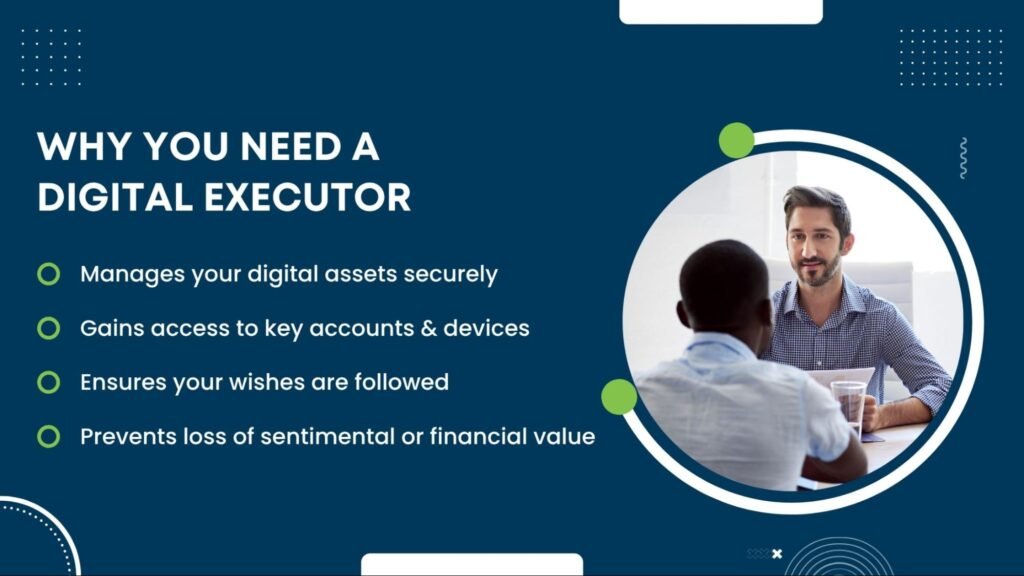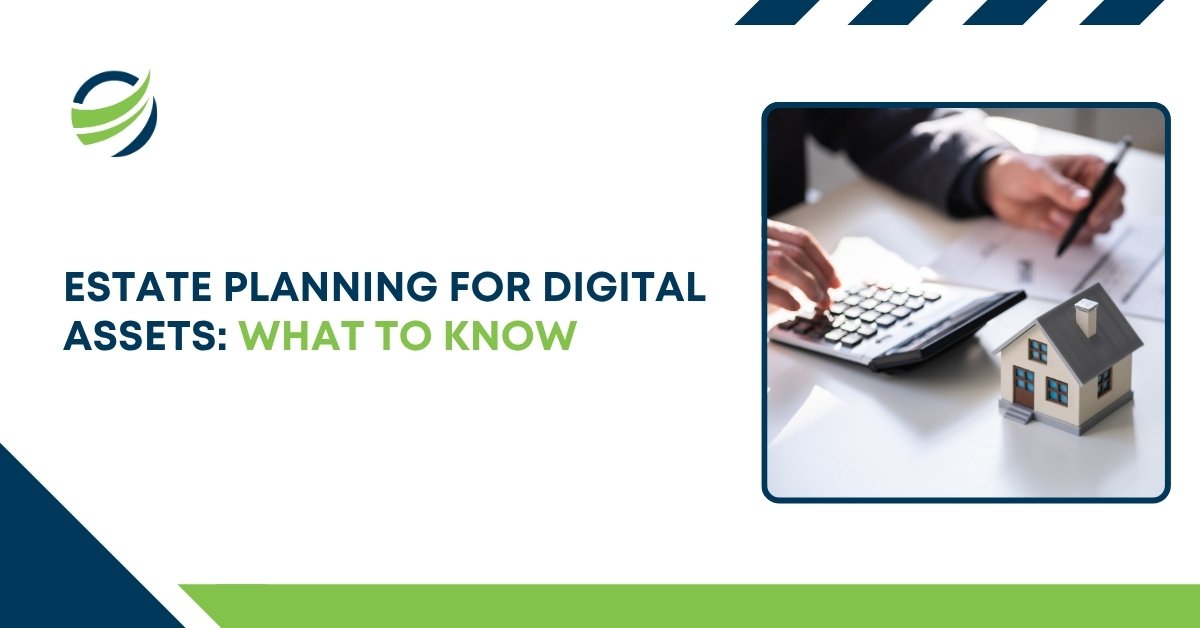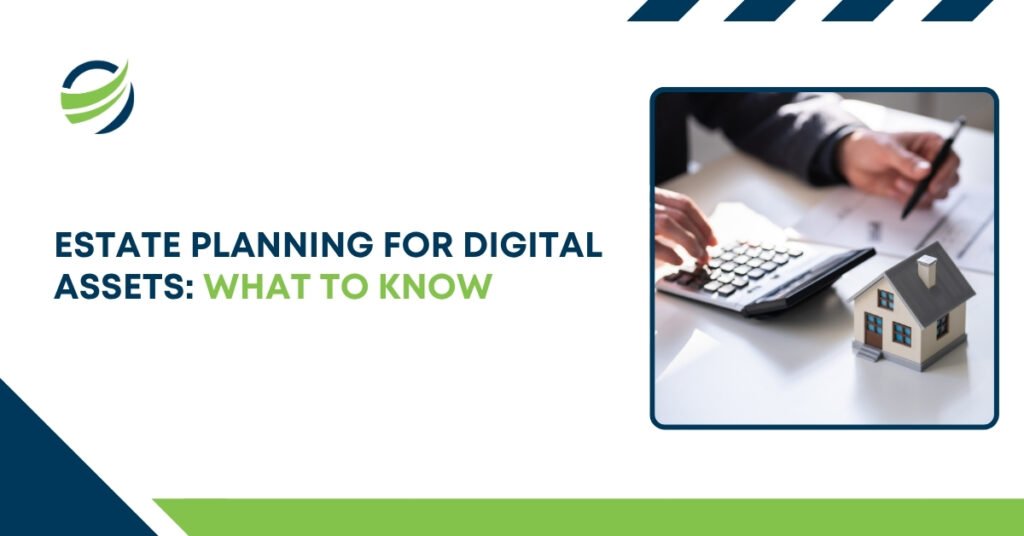As society becomes increasingly reliant on technology, the nature of personal assets has evolved. Today, an individual’s estate is no longer limited to physical property, bank accounts, or investment portfolios. Digital assets, like email accounts, cloud storage, social media profiles, online banking, cryptocurrency, and loyalty programs, have become an integral part of your modern legacy.
Despite their growing importance, these digital assets are often overlooked in traditional estate planning. This oversight can create legal complexities, emotional distress for loved ones, and in some cases, irreversible financial loss.
In 2025, effective estate planning must reflect the digital reality we live in, particularly when it comes to tax implications and regulations such as inheritance tax in Canada, which increasingly intersect with digital holdings.
In 2025, effective estate planning must reflect the digital reality we live in. This article outlines key considerations for managing your digital estate, the risks of inaction, and the tools available to ensure your digital legacy is preserved, protected, and properly transferred.
What Is a Digital Asset and Why Should It Be Part of Your Estate Plan?
When considering estate planning for digital assets, it’s important to understand what qualifies as a digital asset. These include anything you own or control online, such as email accounts, photos, documents stored in the cloud, cryptocurrency wallets, loyalty points, and social media profiles. While some hold sentimental value, others carry real financial worth.
Think of family photos saved on your computer or cloud storage. Unlike printed albums of the past, these can easily be lost if access details aren’t shared. Social media profiles also raise important questions: Should your Facebook page be memorialized or deleted? Without clear instructions, your loved ones may be forced to make difficult decisions based on assumptions.
There are also financial reasons why digital assets estate planning is crucial:
- Cryptocurrency like Bitcoin, now valued at over $1.3 trillion globally as per CoinMarketCap, can be lost forever without access to private keys.
- Loyalty programs (e.g., Air Miles, credit card rewards) may have cash value, but only if your executor knows how to claim them.
- Online accounts with banks, investment platforms, or e-wallets can remain inaccessible without login details or instructions.
How to Take Control of Your Digital Assets in Estate Planning
Since current laws offer limited guidance, estate planning for digital assets requires proactive steps. Begin by identifying all digital assets and accounts, including devices, emails, cloud storage, and cryptocurrencies.
Specify your wishes for each asset, assign a trusted person to manage them, and securely share access, ideally through a password manager like LastPass or 1Password.
Keeping your digital inventory up to date is crucial to ensure your estate plan remains accurate, relevant, and legally effective. Leverage digital estate planning tools such as password managers, cloud-sharing apps, and encrypted storage to simplify the process and maintain security.
Looking at Estate Planning Through a Digital Asset Lens
- Our digital lives are expanding rapidly, with growing footprints in cloud storage, online banking, e-commerce, and virtual investments.
- Over time, we accumulate digital assets such as domain names, blogs, online music libraries, digital storefronts, and more, many of which go unnoticed.
- These assets often carry sentimental or financial value, yet without proper digital estate planning, they may be lost or exposed to fraud or cyber threats.
- If not documented in your Will or digital estate plan, these assets could become permanently inaccessible to your heirs.
Consider using a digital vault estate planning solution, secure, centralized platforms that store your credentials, final wishes, and access instructions, ensuring your executor can locate everything when the time comes.
Digital Assets with Sentimental Value
- Social media accounts like Facebook or X may seem trivial, but they often carry emotional significance for family and friends.
- You may want a final message shared or your account memorialised, both of which require someone to have access credentials.
- Families may disagree on what to do with your profiles, making it important that estate planning for digital assets reflects your personal wishes.
- Companies like Google and Meta are legally restricted from disclosing electronic communications, even to family or executors.
- Including instructions in your Will alone isn’t enough; your executor may lack the digital literacy or authority to manage these assets without clear, separate guidance.

The Key Role of a Digital Executor in Estate Planning
- Appointing a digital executor is essential in estate planning for digital assets. This person manages your online accounts and digital property after your passing.
- They can be the same as your main executor or a separate individual, ideally someone tech-savvy and trustworthy.
- In many jurisdictions, a Will’s executor does not automatically have legal access to digital accounts, making it vital to provide login credentials and written instructions.
- Melanie McDonald, VP at BMO Trust Company, emphasizes: “The executor has all the power… so you really want to be careful that you pick the right executor and give them clear instructions.”
- Sentimental digital assets, such as cloud-based photo libraries, may remain permanently inaccessible unless your digital executor knows they exist and how to retrieve them.
Managing High-Value Digital Assets in Estate Planning
For households where online earnings (such as from YouTube or influencer content) are shared, strategies like income splitting in Canada may offer tax advantages, further supporting the need to include digital income sources in your estate plan.
- Emails and Devices Hold Crucial Access
Many financial records and authorizations live in emails or behind device-based two-factor authentication. Without login credentials, loved ones may be locked out. Include email and device access in your will. - Outdated Devices May Store Valuable Data
As tech evolves, old phones or laptops may still contain important digital assets. Make it a habit to review and transfer important files before disposing of outdated devices to avoid losing valuable digital assets. - Don’t Overlook Loyalty Points and Rewards
Programs like airline miles or credit card rewards may be transferable. Review each company’s policy, some allow point transfers with a death certificate and a clear will be requested. - Cryptocurrency Needs Special Attention
Crypto wallets require secure access to private and public keys. If not shared properly, digital currencies may be permanently lost. Use secure storage (e.g., safety deposit box) and include access details in your estate plan. - Social Media Can Generate Income
For creators or influencers, platforms like YouTube or Instagram may produce substantial income. Treat these as financial assets and ensure access details and monetization plans are passed on.
Business owners and content creators should also be mindful of TOSI rules in Canada, which may apply to digital income passed on to beneficiaries, making it all the more important to document and disclose these assets in your estate plan.
Conclusion
As our lives become increasingly digital, it’s essential to treat online assets with the same importance as physical ones in your estate plan. Digital assets like emails, loyalty points, and crypto wallets often hold real financial value. Without access, your beneficiaries may miss out on what’s rightfully theirs.
To safeguard these assets, appoint a digitally-savvy executor and provide clear, written instructions along with secure access to credentials. Many jurisdictions don’t grant automatic access to digital accounts, making advance planning critical. If you’re already applying tools like a spousal loan strategy to optimise your financial estate, don’t overlook the value of securing digital assets with similar clarity and planning
A complete digital estate planning strategy ensures peace of mind, for you and your loved ones, by protecting your memories, financial assets, and online legacy long after you’re gone.












